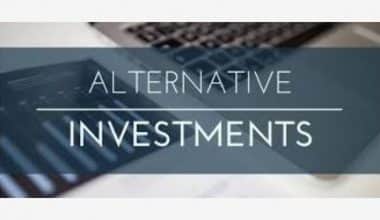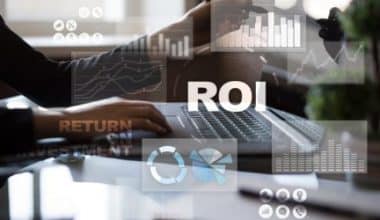Investors may still be in shock following a period of high inflation and the Federal Reserve’s swift increase in interest rates. The majority of last year saw stocks in a decline; at one point, they even entered a bear market. Some investors might believe there is nowhere good to invest given the widespread concern among leading economists that a recession could be imminent. But, if you extend your time horizon for investing, 2023 can position you for future gains. Hence, to dig deep into the oceans of the best assets to buy for beginners, during the recession, and for passive income in 2023, here is the best place to get the information you need.
Let’s roll!!!
Preamble
You could picture the chaotic New York Stock Exchange when you hear the word “investment,” or you might believe that it is just for people who are wealthier, older, or further along in their careers than you. And nothing could be further from the truth than this. When done carefully, investing is a terrific way to increase the value of your money. And practically everyone can invest in a variety of ways, regardless of age, income level, or profession. Yet, these variables will affect which investments are the most advantageous for you right now.
Why Buy Assets?
You can use investing to supplement your income, finance your retirement, or even get yourself out of a tight spot financially. Above all, investment increases your money, enabling you to reach your financial objectives and gradually boosting your purchasing power. Or perhaps you recently sold your house or received a windfall. Choosing to put your money to work for you is a good choice. While investing can help you accumulate wealth, it’s important to weigh the risks and potential rewards. And you’ll want to be in a position to accomplish that financially, which means you’ll need sustainable debt levels, a sizeable emergency fund, and the ability to ride out market ups and downs without having to use your money.
There are a variety of investment possibilities, ranging from low-risk selections like certificates of deposit and money market accounts to medium-risk ones like corporate bonds and even higher-risk ones like stock index funds. That’s fantastic news since it means you can select investments that meet your risk tolerance and give a range of rewards. Additionally, it implies that you can mix investments to build a balanced, diversified, and hence safer, portfolio.
Best Assets to Buy In 2023
So, which assets are the finest to buy this 2023? The list below offers you a balanced combination of growth and safety during what appears to be a challenging market situation by starting with safer options and moving on to those that should give better returns but may be more erratic. The list of the best assets to buy in 2023 includes:
#1. High-Yield Savings Accounts
You get interested in your available funds when you have a high-yield online savings account. High-yield internet savings accounts are accessible assets for your money in 2023, just like a savings account earning pennies at your local bank. For people who may soon require access to money, a savings account is a suitable option. For risk-averse investors who wish to eliminate the possibility that they won’t get their money back, a high-yield savings account is a good option. Although high-yield savings accounts are regarded as safe investments, similar to CDs, if rates are too low you face the danger of losing purchasing power over time due to inflation.
#2. Short-Term Certificates of Deposit
Banks issue certificates of deposit, or CDs, which often have a greater interest rate than savings accounts. And if you anticipate an increase in interest rates, short-term CDs can be a better choice because they allow you to reinvest at a greater rate when the CD matures. Retirement investors who are able to lock their money away for a while and don’t require immediate income may find CDs to be a viable option because of their safety and greater returns. Risk-averse individuals who need money quickly and are willing to tie up their cash in exchange for a little bit higher income than they would get from a savings account can consider a certificate of deposit (CD). It’s crucial to remember that taxes and inflation may severely reduce the purchasing power of your investment. With a CD as one of the assets to buy in 2023, you receive interest payments from the financial institution on a monthly basis. You receive your initial money back along with any accumulated interest once it matures.
#3. Short-Term Corporate Bond Funds
Bonds, which can be packaged into funds that own bonds issued by potentially hundreds of firms, can be issued by corporations as a way to raise money from investors on occasion. Since short-term bonds typically have maturities between one and five years, they are less prone to interest rate changes than intermediate- or long-term bonds. For investors seeking cash flow, such as retirees, or who wish to lower their total portfolio risk while still earning a return, corporate bond funds can be a great option. For risk-averse investors looking for a little bit more income than government bond funds, short-term corporate bond funds can be beneficial.
#4. Value Stock Funds
This is yet one of the assets to buy in 2023. Value stocks, which are more affordably priced than other marketable securities, are the focus of these funds’ investments. As stock prices rise, as they occasionally do, many investors question where they should put their money. Value stock mutual funds might be a wise choice. Value stock funds are a fantastic choice for individuals who don’t mind the volatility that comes with stock investment. To weather any market hiccups, stock fund investors must have a longer-term investment horizon of at least three to five years.
#5. REIT Index Funds
One of the most alluring assets to buy in real estate in 2023 is through a real estate investment trust or REIT. In exchange for not paying corporation taxes, REITs distribute enticing dividends, and REIT index funds distribute those dividends to investors. A single publicly traded REIT fund may contain dozens of stocks and let you invest in a variety of subsectors, including lodging, apartments, offices, and many more. They offer investors a solid approach to gaining diverse exposure to the real estate market without having to worry about the hassles of self-managing the property.
#6. S&P 500 Index Funds
Since the S&P 500 index fund is based on around 500 of the biggest American corporations, it includes many of the most prosperous global businesses. For instance, two of the most well-known members of the index are Amazon and Berkshire Hathaway. An S&P 500 index fund is a fantastic solution if you wish to attain larger returns than more conventional banking products or bonds, although it does have more volatility. For novice investors, an S&P 500 index fund is a great option since it offers extensive, diversified exposure to the stock market. Every stock investor searching for a diversified investment who can commit to holding their investment for at least three to five years should consider an S&P 500 index fund.
Best Assets to Buy for Beginners
It’s vital for new beginners to understand their risk tolerance prior to making any investments like buying assets. You don’t want a nasty surprise after you’ve invested because some investments are riskier than others. Consider your ability to go without the funds you will be investing and whether you can go a few years or longer without having access to them. Here are some of the best asset suggestions for beginners to buy.
#1. High-yield Savings Accounts
One of the simplest methods to increase your return on investment over that of a typical checking account is to do this. High-yield savings accounts, which are frequently opened through an online bank, typically offer consumers regular access to their funds while paying an average interest rate that is higher than normal savings accounts. This can be a wonderful spot to stash money you’re keeping in case of an emergency or save for a purchase you want to make in the next few years.
#2. Certificates of Deposit (CDs)
This is one of the best assets to buy for beginners. An alternative to high-yield savings accounts is a certificate of deposit (CD), but this will tie up your money for a longer period of time. You can buy a CD for as little as six months or as long as five years, but normally you can’t retrieve the funds before the CD closes without incurring fees.
#3. 401(k)
This may be among the simplest methods to begin investing, and it comes with some significant benefits that may help you both now and in the future. The majority of employers offer to match a percentage of the amount you decide to set aside from your regular paycheck for retirement. You are passing up free money if your employer offers a match and you don’t take advantage of the opportunity.
#4. ETFs
While exchange-traded funds, or ETFs, fluctuate throughout the day like stocks do, they differ from mutual funds in that they own a basket of securities. The minimum investment for ETFs is lower than that of mutual funds, which is normally a few thousand dollars. ETFs can be bought for the price of one share plus any applicable fees or commissions, though you can start off with much less if your broker supports fractional share trading. In tax-advantaged accounts like 401(k)s and IRAs, mutual funds and exchange-traded funds (ETFs) are excellent investments.
#5. Individual Stocks
Nonetheless, you should think about whether purchasing a stock makes sense for you before you start making trades. Ask yourself if you understand the business you are investing in and if you are investing for the long term, which is typically defined as at least five years. Because equities are priced every single second of the trading day, those who own individual stocks sometimes succumb to the short-term trading mentality.
#6. A Mutual Fund
Beginners who may not be able to readily buy or put together a portfolio of stocks, bonds, or other assets on their own have the opportunity to do so through mutual funds. The most well-liked mutual funds follow indexes like the S&P 500, which includes about 500 of the biggest U.S. corporations. Investors in index funds typically pay extremely little or no fees, depending on the product. These affordable fees enable investors to retain a larger portion of the fund profits, which can be a wonderful way to accumulate money over time.
Best Assets to Buy During a Recession
It’s easy to forget that what goes up can also fall while the market is booming. But because economic slowdowns are frequently cyclical, there will likely be another recession in the future. It is wise to be ready for it whether it is imminent or some time off. By doing this, you’ll avoid taking part in the frantic exodus out of stocks and into cash. Instead, you’ll keep in mind that stocks can still perform in a downturn if you know which ones to buy. However, the list below shows some assets to buy during a recession:
#1. Look for Stocks Assets in Core Sectors.
You might be tempted to give up on stocks during a recession, but experts advise against doing so. There are frequently a few industries that push on and offer investors stable profits even when the rest of the economy is in trouble. So if you want to use equities to protect yourself against a recession in part, think about investing in the healthcare, utility, and consumer goods industries. Regardless of the situation of the economy, people will continue to spend money on food, power, household goods, and healthcare. These stocks thus frequently perform well during busts.
#2. Real Estate Assets
For homeowners, the fall of the housing market in 2008 was a nightmare. Other real estate investors, though, found it to be a blessing. A recession may present a buying opportunity for investment homes when home values fall. While you weather the recession, you’ll have a regular revenue stream if you can rent out a property to a dependable tenant. You can sell for a profit whenever real estate values start to increase once again.
#3. Buy Investments in Precious Metals.
During market lulls, precious metals like gold or silver frequently do well. Yet, because there is typically a rise in demand for certain commodities during recessions, their prices typically increase as well. There are numerous ways to invest in precious metals. Purchasing coins or bars from a vendor or coin dealer is the simplest option. Although this is not the same as purchasing a security, it is still a viable choice. ETFs should be your focus if you’re more interested in purchasing precious metal equities. These funds are assemblages of investments made in a specific sector, in this case, the market for precious metals. If you’re saving expressly for retirement, you could also buy a gold IRA.
#4. Put Money Into Yourself.
During a recession, if you lose your job and source of money, you might recover by “investing in yourself.” You might return to school to learn new things or hone existing ones so you can land a better job. If you are concerned that your employment status might deteriorate at some time, paying off debt is another choice. During an economic crisis, you’ll feel less anxious if you have less money to spend on bills.
Best Assets to Buy for Passive Income
You must develop passive income if you want to be financially independent before reaching the traditional retirement age (60+). But, creating a taxable investment portfolio, which includes investing in real estate, alternative assets, and more, is the only method to get useful passive income. Here is a list for you to choose the best assets to buy from your passive income:
#1. Dividend Investing: Best Assets to Buy for Passive Income
Stocks that pay dividends are the best investments for passive income. Following their underperformance against growth stocks during the epidemic, dividend and value stocks are now making a comeback. Following a stock market crash in 2023, dividend stocks are now more affordable and have higher yields. Companies that pay dividends typically have reached the end of their strong development phase and are more mature. They are consequently less volatile when viewed in the context of stocks. The majority of companies that pay dividends typically belong to the utilities, telecom, and financial industries.
#2. Crowdfunding for Real Estate, REITs, and Real Estate ETFs
My main means of obtaining financial independence has owned actual real estate. Real estate crowdfunding makes it possible for regular people to own a portion of a commercial real estate project that was previously exclusively open to institutional investors or people with extremely high net worth. While owning individual properties is nice, it’s like using leverage to go all-in on one asset in a certain place. Your concentrated investment could suffer greatly if you are forced to sell if the market declines. In the previous financial crisis, many people did. Real estate crowdfunding, in contrast to other passive investments on the list, at least has a tangible asset as security.
#3. Physical Real Estate:
Because it is simple to grasp, offers shelter, is a tangible asset, doesn’t lose value instantly like stocks do overnight, and creates income, real estate is some people’s preferred asset class for constructing wealth for the typical individual. Owning physical real estate only has one drawback: because of tenants and maintenance issues, it performs poorly on the Activity variable. In addition, problems with maintenance can persist without regular preventative maintenance.
#4. Peer-to-Peer Lending and Hard Money Lending:
It’s challenging to lend money directly to friends, family members, and strangers for passive income. Money frequently destroys relationships and friendships. You could use P2P lending to make money lending less personal. Peer-to-peer lending is intended to eliminate banks as a middleman and assist borrowers who have been turned down for credit in obtaining loans at rates that may be lower than those of larger financial institutions. People not repaying investors in P2P lending, such as borrowers who default on their loans, is the biggest issue.
#5. Debt or Private Equity Investing:
With the correct investments, private equity investing may be a fantastic source of financial growth. The returns on the next Google will much exceed those of any other passive income investment if you can locate it. Finding the following Google is a difficult effort, however, as most private businesses fail. Investments in equity or credit hedge funds, real estate funds, and private company funds are the most liquid types of private equity investments. Investments in private debt also include real estate funds and venture capital.
#6. Money Market / Certificate of Deposit:
Anyone can visit their neighborhood bank and open a CD for as time they wish. Low-interest rates make it wise to increase your net worth before retirement or reduce your safe withdrawal rate in retirement. To produce the same level of risk-adjusted income today, one must invest significantly more capital. CIT Bank now offers 5.0% term CDs. Moreover, the FDIC guarantees up to $250,000 per person. The rate is at its highest level in a long time.
#7. Fixed Income (Bonds)
Bond yields are at last enticing once more! After more than 35 years of declining interest rates and inflation, 2023 was one of the worst years ever for bonds. Bond fund investments have failed as inflation has increased. Bonds typically offer a decent defensive allocation to a portfolio of investments, particularly in difficult economic times. All coupon payments and principal are refunded if you hold a government bond until it matures.
Bond investments come in a wide variety of different forms, much like stocks. Also, you can purchase individual municipal or business bonds. Just be aware that there is no maturity date for bond funds. As a result, if you have to sell, your primary risk will be higher. Particularly appealing to higher-income individuals with high marginal tax rates are municipal bonds. Government bonds may also be purchased immediately through your online brokerage account.
What Is the Most Profitable Asset?
Those who are extremely affluent often invest in assets like land, gold, private and commercial real estate, and even works of art. To offset the volatility of stocks, real estate remains a popular asset type in their portfolios.
What Assets Do the Rich Buy?
- Peer-to-Peer Lending.
- Building A Business.
- Stocks.
- Savings Accounts.
- Farmland.
- Real Estate Assets
- Certificates Of Deposits.
- Private Equity Investing
What Are Cheap Assets to Buy?
- Boinds
- Certificates of deposit (CDs)
- Dividend-yielding stocks.
- Real estate investment trusts (REITs)
Related Posts
- MONEY INVESTMENTS: Best 2023 Options for Beginners & Pros (Updated)
- 15 Best Compound Interest Investments & All You Need
- What Does Investing Mean? How It Works and How to Start
- GOOD INVESTMENTS: Best 15 Options to Start Now!!! (Updated)
- 11+ Best Things To Invest In Right Now! (Updated)






